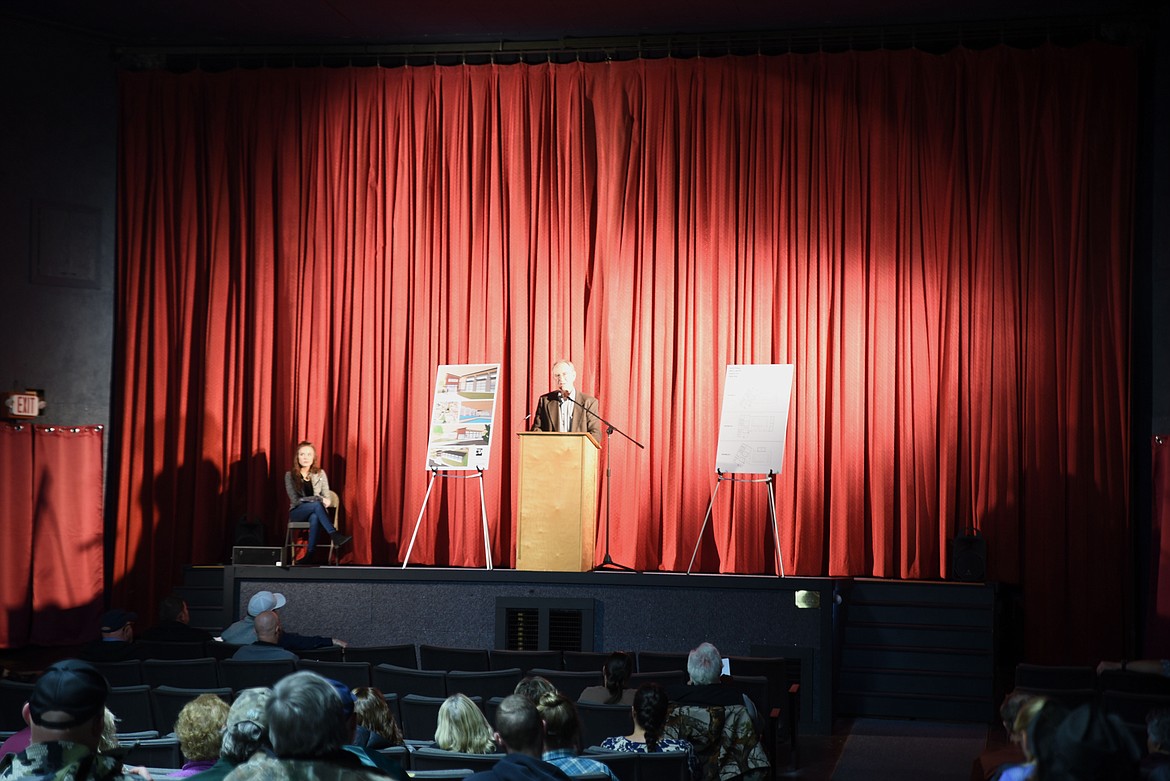Pool proposal makes splash at community forum
A group of Libby residents, backed by what they say is widespread community interest, publically launched Oct. 10 an initiative to construct a new public swimming pool in the city.
Unveiled during Libby Chamber of Commerce’s “community conversations” event at the Dome Theater, the project remains in the very early planning stages. Proponents envision an all-season facility for recreation, exercise and physical therapy.
“First, we want to decide what it’s going to be, then we will decide where it’s going to be,” said Tony Petrusha, who acted as the spokesperson for what is known as the Kootenai Wellness Aquatic Center planning committee.
The group is weighing three design options that vary in prices and amenities, but they hope to keep the construction at no more than $5 million. If the pool proposal comes to fruition, organizers plan to bestow it to Lincoln Country Park District. They hope to see it built by 2021.
The Center got its start following the 2018 midterm elections. Exit polls showed that about 90 percent of residents favored construction of a pool.
Since as far back as the 1970s, proposals for an aquatic center in Libby have failed. The last public swimming pool in the city, operated by the Libby Racquet Club, closed in 1984 after conditions deteriorated beyond repair.
“What we want is for the Libby community to say yeah we can get behind this pool,” Petrusha said.
In 2005, efforts for a pool once again gained momentum. Spearheaded by Jim Germany, the $2.8 million aquatics center proposal got as far as the ballot. More than 65 percent of voters came down against the incremental taxes to support the cost of building and maintaining the pool complex.
Following the 2005 defeat, Germany questioned whether Libby would ever have a pool.
Almost two decades later, Germany, now a KWAC member, said the group is tackling this effort differently.
“They are going build the pool with donations and only tax to maintain the pool,” he said.
The cost to operate and maintain a pool can be anywhere from $100,000 to $250,000 a year, Petrusha said.
“Half of that cost can come from user fees, but the rest must come from taxpayers,” he said.
Petrusha said the biggest challenge is figuring out why the pool projects get rejected by voters.
“That’s the problem and that’s what we have to solve,” he said.
The aquatics group is hosting a public meeting to discuss the three pool options in detail Tuesday, Oct. 22, in room seven of the School Superintendents Building at 724 Louisiana Ave. The meeting will begin at 6:30 p.m.

